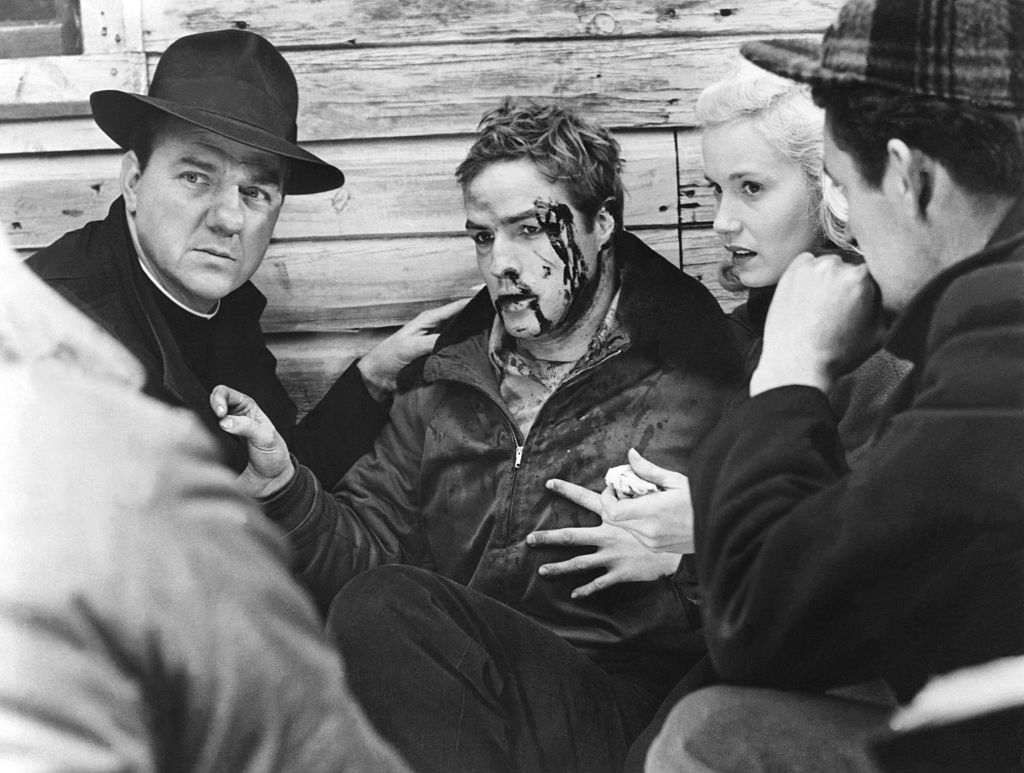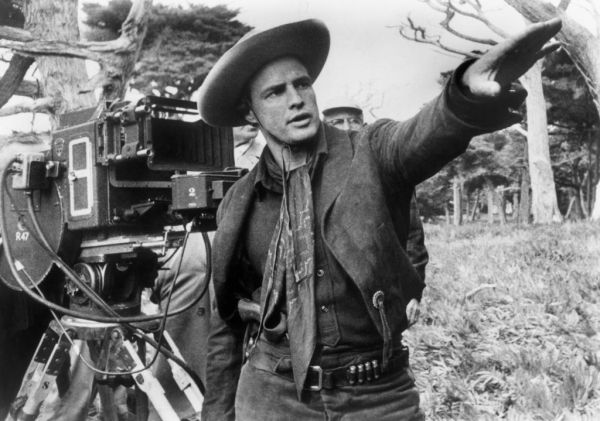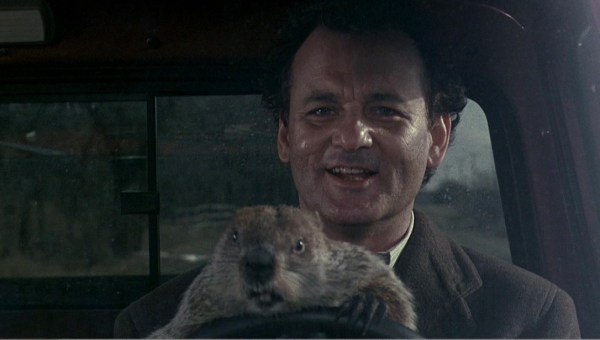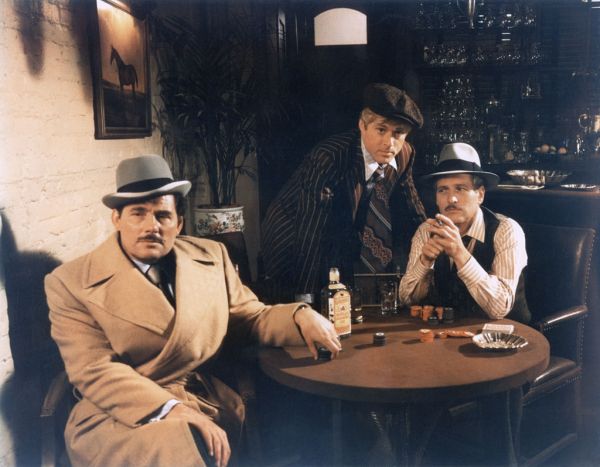In 1950, a Jesuit priest sat across from a screenwriter at Billy the Oysterman on 20th Street in Manhattan. Father John Corridan agreed to meet Budd Schulberg at the restaurant to talk about what some considered his obsession, but what the priest called a vocation: breaking a crime ring that bilked longshoremen out of millions of dollars a year in Hoboken, New Jersey.
At nearby Xavier Institute of Industrial Relations, where he was associate director, Father Corridan’s office desk was piled with article clippings, and file cabinets teemed with research papers. Although the fish at Billy’s was delicious—“I make them literally swim in butter,” the owner said—the loquacious Father Corridan barely touched his meal. Schulberg had heard rumors about the priest, and couldn’t believe that his eyes and ears confirmed the reality. The priest’s speech “was a fascinating blend of Hell’s Kitchen jargon, baseball slang, the facts and figures of a master in economics, and the undeniable humanity of Christ.” His laugh was “hearty, slightly malicious,” and he was “fit enough to swing a hook with the best of them.” The priest seemed like he should be a character in a movie.
Soon, he would be—and it was one of the best movies ever made.
On the Waterfront turned 70 earlier this summer, and it still stands as a great film. I might be biased; I’m a lifelong Jersey guy and Catholic, with family who have worked at the port, and my dad was a Golden Gloves boxer. But I watched it again as a skeptic—lately, I’ve been disappointed with rewatches of some classic films. Too slow, too maudlin (and I say this as a fan of contemporary films like Godland, about a 19th-century Lutheran priest trekking across Icelandic countryside).
On the Waterfront, though, remains an inspired film. Marlon Brando glows as Terry Malloy, a boxer turned longshoreman whose brother Charley (Rod Steiger) works for mob boss Johnny Friendly (Lee J. Cobb). Johnny has a stranglehold on Longshoreman’s Local 374. He extorts his 2,000 dues-paying members for the right to work each day—and threatens anyone who will talk with violence. Most everyone stays D and D: “deaf and dumb.” Those who dare to talk about the union’s corruption pay the price.
Schulberg adapted an organized crime exposé by Malcolm Johnson that won the Pulitzer Prize in 1949. Johnson’s dogged reporting in the New York Sun laid the foundation for Schulberg’s further research, coupled with his storytelling skill as a novelist. Growing up in Los Angeles, Schulberg was always around boxers, and many remained friends. He once made the mistake of sparring with a boxer that he managed—and promptly got his nose broken. So he traded his gloves for a typewriter and refined the script for director Elia Kazan, who had previously been at the helm in films like Gentleman’s Agreement and A Streetcar Named Desire.
On the Waterfront opens with a shot of docked boats, including a small one outfitted with a cross. A line of men march out of the local union office and up a gangplank. Terry, a hand tucked inside his open jacket, looks apprehensive about what Johnny has asked him to do: coax another worker named Joey Doyle onto the rooftop of his apartment building. Terry does his job, but he is shocked to see Joey thrown to his death.
Brando’s magic in the film is his ability to create a tough but strained character, and it starts from this first moment. Terry is hiding not a gun in his jacket, but a pigeon—one of Joey’s lost pigeons. Terry releases it toward the rooftop, where he will spend much of the film in almost ascetic contemplation. He soon falls for Joey’s sister, Edie (Eva Marie Saint), who seeks atonement for her brother’s death.
On the Waterfront would be a great film for its thrilling plot, its love story, and layers of betrayal alone. But it is Karl Malden as the local priest, Father Pete Barry, who raises the film to another level—a story for the ages.
When the priest tells Edie that “time and faith” alone will heal her grief, she admonishes him to deal with reality. He does this through risky pastoral work: putting his own life on the line to convince the longshoremen that the union run by Johnny now exists to harm, not protect them.
In a scene that encapsulates the film, Johnny’s thugs drop a cargo shipment onto Kayo Dugan, a longshoreman, as retribution for testifying to the mob’s crimes. The whiskey crates crush him. One worker pleads for a doctor, but “Pop” Doyle, who lives with the grief of his son, responds: “He doesn’t need a doctor; he needs a priest.”
“It’s a crucifixion!” Father Pete exclaims. He tells the complacent workers: “Anybody who sits around and lets it happen, keeps silent about something he knows has happened—he shares the guilt of it just as much as the Roman soldier who pierced the flesh of our Lord to see if he lived.” A worker interjects: “Go back to your church, Father!” The priest responds: “This is my church!”
Those words ring out from the bottom of the freighter, toward the skeptical men surrounding him. They ring out too toward those in power, looking down from the higher level of the ship. Father Pete is in a position of weakness, yet his rhetoric soars.
Father Pete is clearly based on Father John Corridan, who himself was called Father Pete (there were apparently too many “Johns” in his Jesuit novitiate). Although Schulberg was a self-described secular Jew, Father Corridan “cut a way for me through the curtain of religious prejudice into the world of Catholic humanism—of Christian social ethics.” The Jesuit was a man of the people; or, more accurately, a man of the workers. “We don’t want to bog ‘em down with a lot of theories, religious or otherwise,” Corridan said. “The men who come in to me are men with a problem—the problem of how to live like human beings.”
Historian James T. Fisher noted that Father Corridan gave the filmmakers his speeches and writings. The iconic “Christ on the waterfront” speech was “first presented at a Jersey City chapter of the Knights of Columbus in 1948.” Although Budd Schulberg imbued fictional elements into On the Waterfront, the story’s emotional center is real: a man of faith who believes in the grace of heaven, but works for justice on earth.









Please note that we at The Dispatch hold ourselves, our work, and our commenters to a higher standard than other places on the internet. We welcome comments that foster genuine debate or discussion—including comments critical of us or our work—but responses that include ad hominem attacks on fellow Dispatch members or are intended to stoke fear and anger may be moderated.
With your membership, you only have the ability to comment on The Morning Dispatch articles. Consider upgrading to join the conversation everywhere.